
Janusz Andrzej Zajdel was a Polish science fiction author, second in popularity in Poland to Stanisław Lem. His major genres were social science fiction and dystopia. His main recurring theme involved the gloomy prospects for a space environment into which mankind carried totalitarian ideas and habits: Red Space Republics, or Space Labor Camps, or both. His heroes desperately try to find meaning in the world around them.
British author Peter F. Hamilton's The Night's Dawn Trilogy consists of three science fiction novels: The Reality Dysfunction (1996), The Neutronium Alchemist (1997), and The Naked God (1999). A collection of short stories, A Second Chance at Eden, shares the same universe, and The Confederation Handbook documents that universe in non-fiction style.
Spirit possession is an unusual or an altered state of consciousness and associated behaviors which are purportedly caused by the control of a human body and its functions by spirits, ghosts, demons, angels, or gods. The concept of spirit possession exists in many cultures and religions, including Buddhism, Christianity, Haitian Vodou, Dominican Vudú, Hinduism, Islam, Judaism, Wicca, and Southeast Asian, African, and Native American traditions. Depending on the cultural context in which it is found, possession may be thought of as voluntary or involuntary and may be considered to have beneficial or detrimental effects on the host. The experience of spirit possession sometimes serves as evidence in support of belief in the existence of spirits, deities or demons. In a 1969 study funded by the National Institute of Mental Health, spirit-possession beliefs were found to exist in 74% of a sample of 488 societies in all parts of the world, with the highest numbers of believing societies in Pacific cultures and the lowest incidence among Native Americans of both North and South America. As Pentecostal and Charismatic Christian churches move into both African and Oceanic areas, a merger of belief can take place, with demons becoming representative of the "old" indigenous religions, which Christian ministers attempt to exorcise.
The Heechee Saga, also known as the Gateway series, is a series of science fiction novels and short stories by Frederik Pohl. The Heechee are an advanced alien race that visited the Solar System hundreds of millennia ago and then mysteriously disappeared. They left behind bases containing artifacts, including working starships, which are discovered and exploited by humanity.
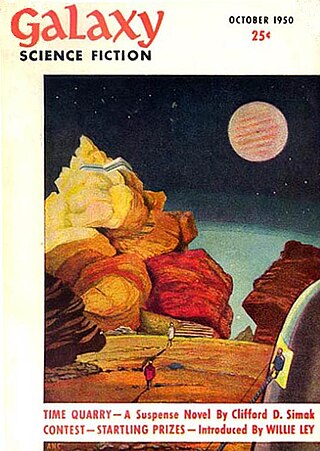
Galaxy Science Fiction was an American digest-size science fiction magazine, published in Boston from 1950 to 1980. It was founded by a French-Italian company, World Editions, which was looking to break into the American market. World Editions hired as editor H. L. Gold, who rapidly made Galaxy the leading science fiction magazine of its time, focusing on stories about social issues rather than technology.
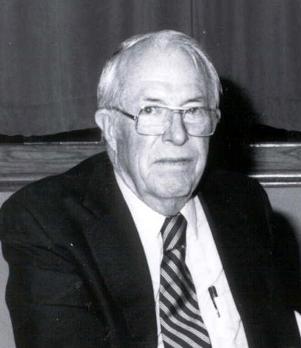
John Stewart Williamson, who wrote as Jack Williamson, was an American science fiction writer, one of several called the "Dean of Science Fiction". He is also credited with one of the first uses of the term genetic engineering. Early in his career he sometimes used the pseudonyms Will Stewart and Nils O. Sonderlund.

Judith Josephine Grossman, who took the pen-name Judith Merril around 1945, was an American and then Canadian science fiction writer, editor and political activist, and one of the first women to be widely influential in those roles.
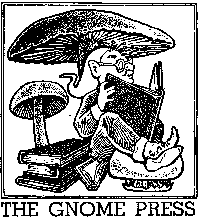
Gnome Press was an American small-press publishing company active 1948 – 1962 and primarily known for fantasy and science fiction, many later regarded as classics.

Gateway is a 1977 science-fiction novel by American writer Frederik Pohl. It is the opening novel in the Heechee saga, with four sequels that followed. Gateway won the 1978 Hugo Award for Best Novel, the 1978 Locus Award for Best Novel, the 1977 Nebula Award for Best Novel, and the 1978 John W. Campbell Memorial Award for Best Science Fiction Novel. The novel was adapted into a computer game in 1992.

The Eyes of the Overworld is a picaresque fantasy fix-up novel by American writer Jack Vance, published by Ace in 1966, the second book in the Dying Earth series that Vance inaugurated in 1950. Retitled Cugel the Clever in its Vance Integral Edition (2005), the story takes place in Vance's Dying Earth setting, where the Sun is dying and magic and technology coexist. It features the self-proclaimed Cugel the Clever in linked episodic stories. Cugel is an anti-hero character; while he is typically a crafty scoundrel who seeks to turn a profit from a situation, he retains some good values at times. In the novel, Cugel is caught stealing from a wizard, who forces Cugel to travel to a faraway realm to find a rare magical jewel.
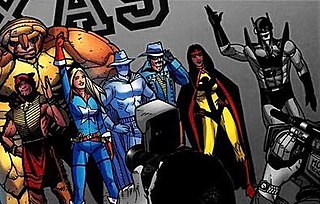
The Rangers are a fictional superhero team appearing in American comic books published by Marvel Comics. The team first appeared in The Incredible Hulk #265 and was created by writer Bill Mantlo and penciller Sal Buscema. The title page of The Incredible Hulk #265 also credits Mark Gruenwald with co-creation of The Rangers.
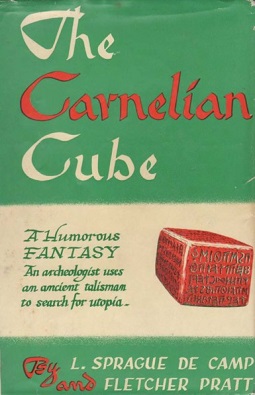
The Carnelian Cube is a science-fantasy novel by American writers L. Sprague de Camp and Fletcher Pratt. It was first published in hardcover by Gnome Press in 1948, and in paperback by Lancer Books in 1967. An E-book edition was published by Gollancz's SF Gateway imprint on September 29, 2011 as part of a general release of de Camp's works in electronic form. It has also been translated into Italian and German.

The Last Theorem is a 2008 science fiction novel by Arthur C. Clarke and Frederik Pohl. It was first published in the United Kingdom by HarperVoyager in July 2008, and in the United States by Del Rey Books in August 2008. The book is about a young Sri Lankan mathematician who finds a short proof of Fermat's Last Theorem, while an alien invasion of Earth is in progress.
The Way Station is a novella by American writer Stephen King, originally published in The Magazine of Fantasy and Science Fiction in April 1980. In 1982, "The Way Station" was collected with several other stories King published in The Magazine of Fantasy and Science Fiction as The Dark Tower: The Gunslinger. "The Way Station" formed the second chapter of the book, and was slightly revised for the inclusion.

Death Masks is a 2003 novel by science fiction and fantasy author Jim Butcher. It is the fifth novel in The Dresden Files, his first published series that follows the character of Harry Dresden, professional wizard.
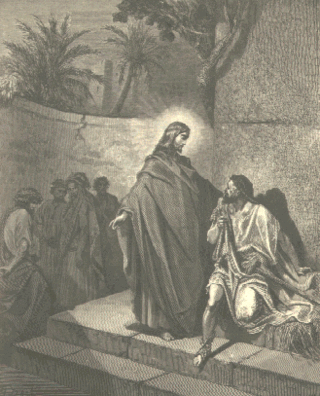
In Christianity, exorcism involves the practice of casting out one or more demons from a person whom they are believed to have possessed. The person performing the exorcism, known as an exorcist, is often a member of the Christian Church, or an individual thought to be graced with special powers or skills. The exorcist may use prayers and religious material, such as set formulas, gestures, symbols, icons, or amulets. The exorcist often invokes God, Jesus, angels and archangels, and various saints to aid with the exorcism. Christian exorcists most commonly cast out demons in Jesus' name.
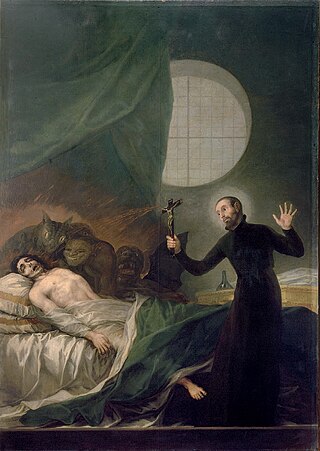
The Catholic Church authorizes the use of exorcism for those who are believed to be the victims of demonic possession. Initial guidelines were issue in 1614. In Roman Catholicism, exorcism is a sacramental but not a sacrament, unlike baptism or confession. Unlike a sacrament, exorcism's "integrity and efficacy do not depend ... on the rigid use of an unchanging formula or on the ordered sequence of prescribed actions. Its efficacy depends on two elements: authorization from valid and licit Church authorities, and the faith of the exorcist." The Catechism of the Catholic Church states: "When the Church asks publicly and authoritatively in the name of Jesus Christ that a person or object be protected against the power of the Evil One and withdrawn from his dominion, it is called exorcism."
This is an incomplete list of works by American space opera and science fiction author Frederik Pohl, including co-authored works.
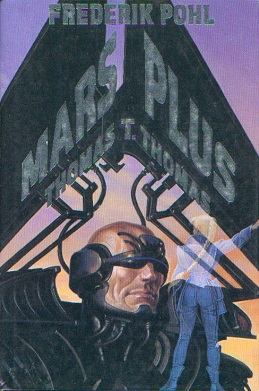
Mars Plus is a 1994 science fiction novel by American writer Frederik Pohl and Thomas T. Thomas. It is the sequel to Pohl's 1976 novel Man Plus, which is about a cyborg, Roger Torraway, who is designed to operate in the harsh Martian environment, so that humans can start to colonize Mars. Mars Plus is set fifty years after the first novel. Young Demeter Coghlan travels to Mars, now settled by humans and cyborgs, and finds herself amidst a rebellion by the colonists.













